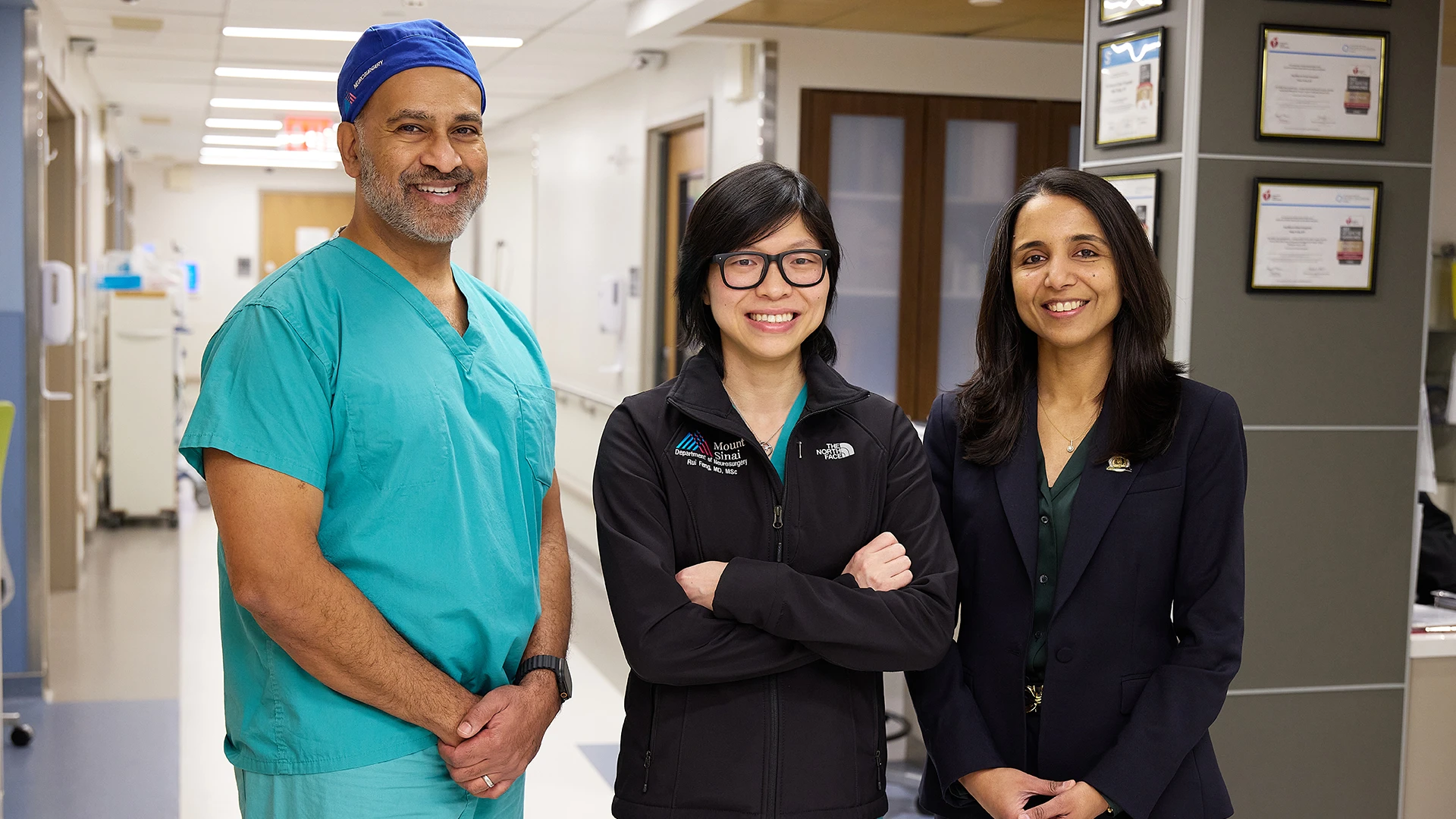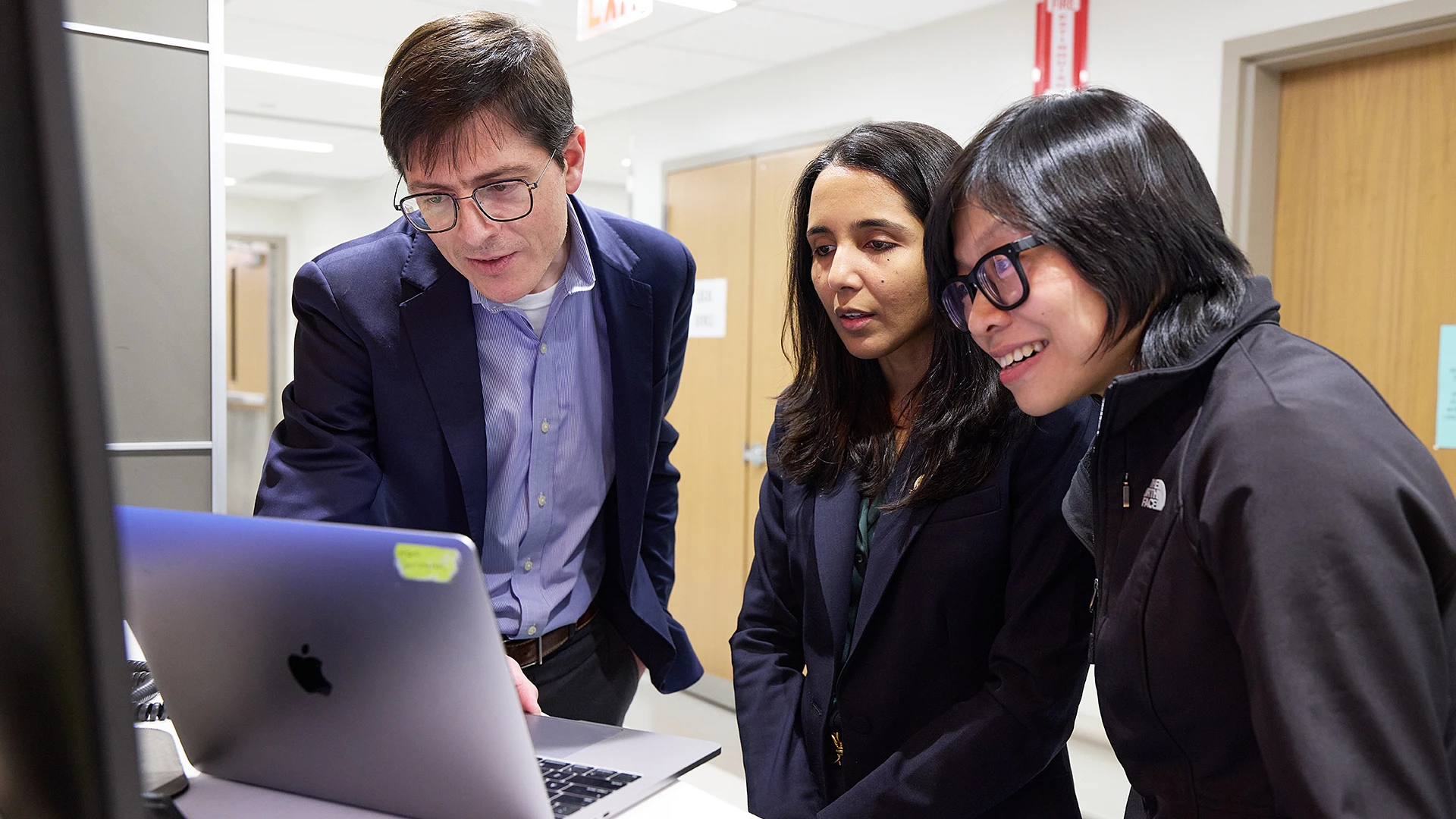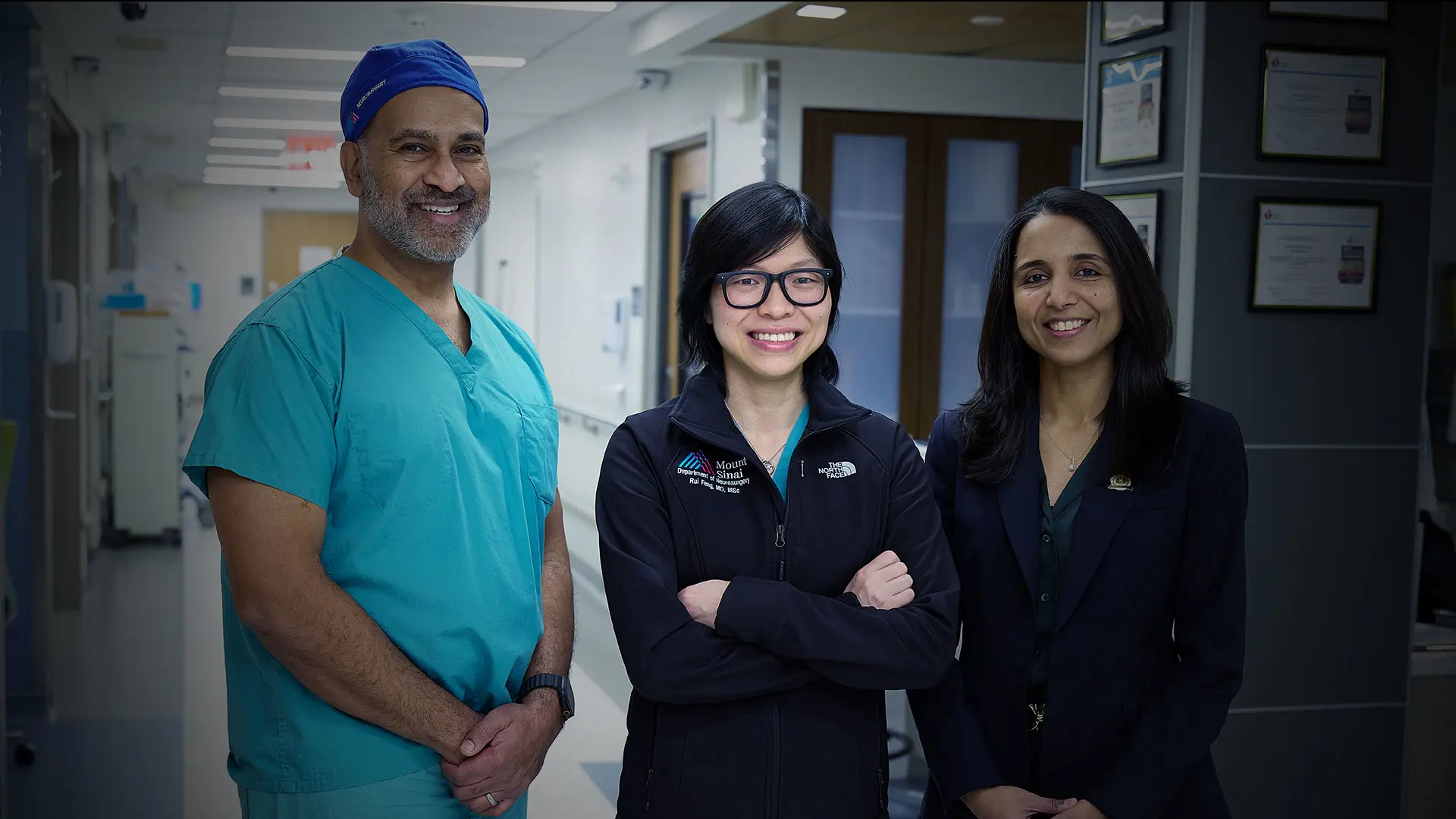
From left: Raj Shrivastava, MD; Neurosurgery Chief Resident Rui Feng, MD, MSc; and Neha S. Dangayach, MD, MSCR.
Her next stop? A skull base surgery fellowship at Thomas Jefferson University. What does she attribute to her success?
“Mount Sinai offers residents exposure to a high surgical volume and clinical autonomy in the operating room,” says Dr. Feng. “Our program is unique in that, early on, residents are in the OR making supervised decisions on patient care. The increased autonomy pushes me to study more, be detail-oriented, and consistently take overall ownership for my patients.”
For her outstanding accomplishments, Dr. Feng was selected as a Mount Sinai Health System TL1 Postdoctoral Scholar, an award funded by the National Institutes of Health and offered by the Institutes for Translational Sciences at the Icahn School of Medicine at Mount Sinai. The award recognizes exceptional postdoctoral fellows dedicated to advancing clinical and translational research careers.
“What came as a surprise was the amount of support and opportunities at Mount Sinai that encouraged me to explore innovative and interesting research ideas and develop data science skills that led to this project,” she says.

From left: Benjamin I. Rapoport, MD, PhD; Neha S. Dangayach, MD, MSCR; and Rui Feng, MD, MSc.
For her research project, “Pose tracking of patient video data in the neurosurgical intensive care unit (NSICU): A preliminary analysis,” Dr. Feng was mentored by neurosurgery faculty members Neha S. Dangayach, MD, MSCR, a neurocritical care neurologist and Director of Research for Neurocritical Care and Recovery at the Mount Sinai Health System; and Benjamin I. Rapoport, MD, PhD, a highly accomplished surgeon scientist on the Skull Base Center team who has a PhD in electrical engineering and computer science and is Scientific Director of Mount Sinai BioDesign. (Read the preprint manuscript in MedRxiv.)
Dr. Feng’s research aims to revolutionize neurological assessments in the NSICU using AI-driven pose-tracking technology. This innovative approach continuously monitors and evaluates patients’ neurological status through video data, enhancing the accuracy and timeliness of assessments compared to traditional methods.
Current neurological exams often have infrequent checks and subjective evaluations. Dr. Feng’s use of computer vision allows for continuous, quantifiable assessments, monitoring patient movements to gauge sedation levels and predict intracranial pressure.
“At Mount Sinai, our neurologically critically ill patients benefit from excellent clinical and research collaboration between neurosurgeons and neurointensivists,” says Dr. Dangayach, “and solving complex problems requires strong interdisciplinary collaboration and innovation. Drawing inspiration from some of our sickest patients, Dr. Feng and I began discussing ways of overcoming the limitations of our current standard of hourly neurological examination, which can be subjective, variable, and sometimes even miss critical changes. Dr. Feng’s use of computer vision allows for continuous, quantifiable assessments, monitoring patient movements to gauge sedation levels and predict intracranial pressure. This research has the potential to change how we practice, making care safer and more patient-centered for neurologically critically ill patients while reducing the burden of documentation for frontline providers.”
Raj Shrivastava, MD, Vice Chair for Education and Director of the Neurosurgery Residency Program, adds: “We offer our neurosurgery residents the latest technologies in modern neurosurgery in all clinical specialties and, significantly, we encourage and support their autonomy to pursue their research interests.”
To Dr. Rapoport, these opportunities are unparalleled. “Surgeons are natural innovators, and we believe learning how to integrate early into our innovation ecosystem is critical to a career in modern neurosurgery. We have been incorporating technology innovation into the residency training in structured ways for many years now, and that makes our program stand out.”
